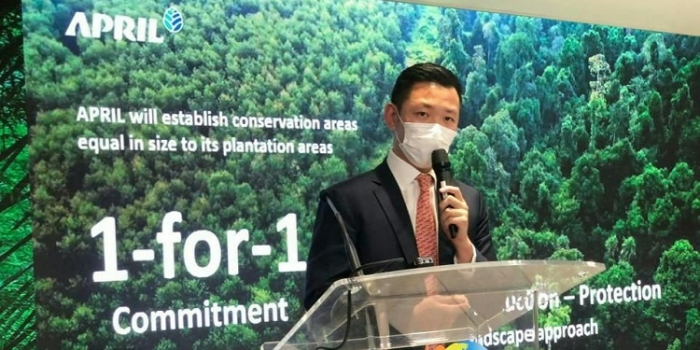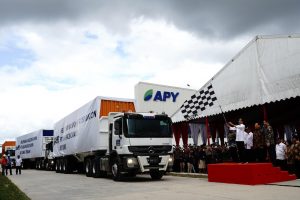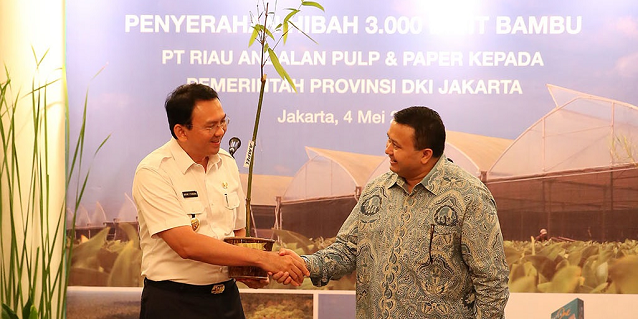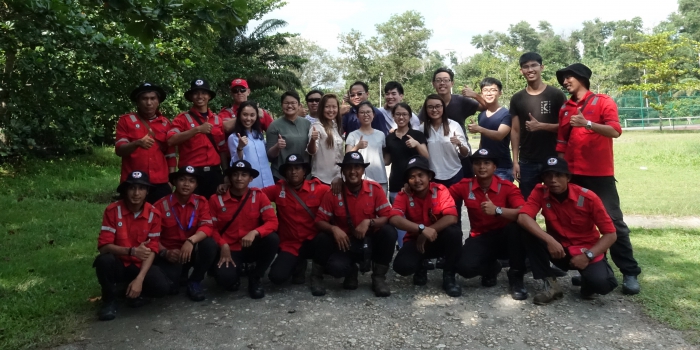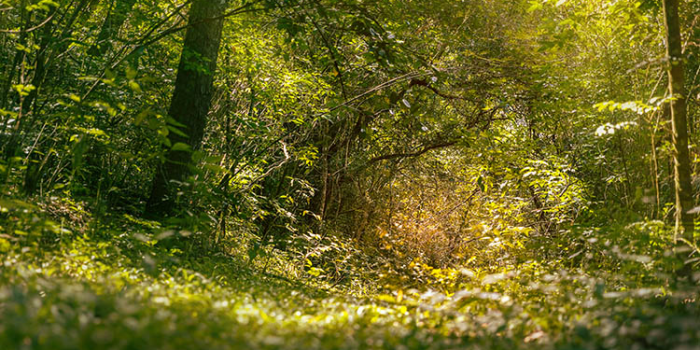Businesses can close the ambition gap in a post-COP26 world.
As the curtain fell on the United Nations Climate Change Conference (COP26), it seemed to suggest that there remained a lack of ambition, with the planet expected to warm by 2.4 deg C rather than achieving the target of 1.5 deg C by 2030.
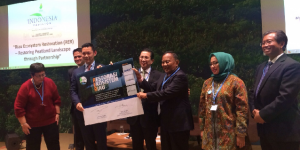
Anderson Tanoto presided over APRIL Group’s Restorasai Riau Ekosistem Project announcement at COP21 in 2015 to double its peatland restoration commitment in Indonesia
However, it has been encouraging to see how the private sector has stepped up between COP21 in 2015 and the recent COP26. Real progress has been made in mainstreaming sustainability into the board rooms and business plans. For those of us who were at both meetings, the sense of momentum among the business community was clear. Business and the environment need to sit on the same side of the equation, not on opposing sides.
As a Singapore-headquartered global company, we see many businesses across Asia making real progress to decarbonise operations and supply chains while edging towards more circular business models. A sea change is underway with the enhanced ability of businesses to grow and decarbonise at the same time; ensure that while they produce, they also protect forests and biodiversity; and empower and engage communities where they operate.
Companies have also been able to add new ways of linking financing to the achievement of measurable improvements in sustainability and adopt new methods for achieving carbon neutrality through avoided emissions, carbon capture, and participating in carbon markets.
Our group of companies produces materials that end up in everything from surgical masks, toilet paper, tissue, cooking oil, packaging and shampoo – products that are used by millions of households around the world every day. Companies like ours have a responsibility to meet consumer demand for products that are made sustainably, if we want to continue to grow.
Another observation is that businesses in the bio-economy such as ours are increasingly questioning how we can accelerate the transition to turn what we grow or make to be more circular – whether it is reusable, recyclable or biodegradable, and how the energy and resources used can become cleaner and greener. We are also constantly asking how we can better engage often hundreds of thousands of stakeholders across our value chain. Many are asking: how can we show, rather than just say, that real progress is being made?
Many of us are taking this fight head-on and driving changes across integrated supply chains. We are intensifying the yield so we can grow more without expanding our resource footprint. We are also investing in zero-discharge water treatment technologies to recycle our water consumption close to 95 per cent and reduce and minimise water consumption, integrating solar energy into the power distribution system and reduce dependence on fossil fuels.
My belief is that resources-based companies can produce, but we must also protect. Similar to the concept of achieving net-zero emissions, one way is to protect and restore as much land as we use. This formed the basis of our one-for-one target of matching 1 hectare of conservation and restoration to every hectare of plantation we have. To date, we have achieved more than 80 per cent of this target, at 400,000 ha of conservation against 480,000 ha of plantation.
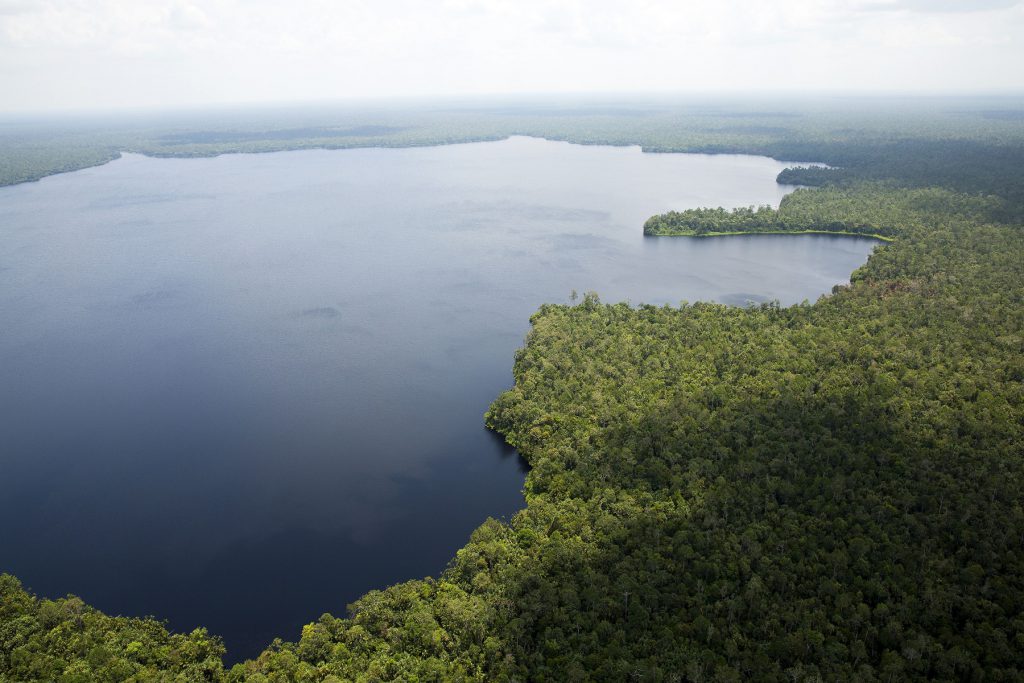
The Restorasi Ekosistem Riau (RER) project – a collaboration between leading pulp and paper producer APRIL Group, International NGO Fauna and Flora International, and Indonesian NGO BIDARA.
Preserving the natural habitats of wildlife is the other component. One example is the Restorasi Ekosistem Riau (RER) 150,000ha peatland restoration project, in Riau, Kampar Peninsula. It integrates sustainable landscape management that involves local communities, government, forestry experts and non-governmental organisations (NGOs) to restore the peatland forest and preserve the natural habitats of over 800 species of wildlife.
The RER is one of the largest carbon emissions projects in the world, achieving 6 million tonnes of avoided carbon emissions per annum and over 300 million tonnes of avoided carbon emissions over 5 decades. Built into the project is the potential to use the voluntary carbon market as a financing mechanism to value standing forests and natural capital – keeping in mind that not all carbon credits are equal, and they have to go hand-in-hand with biodiversity and communities on the ground.
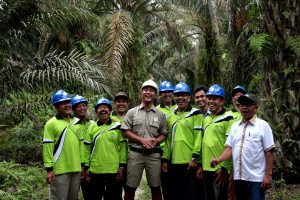
Smallholder partnerships have proven to contribute significant to environmental stewardship and the uplifting of lives in communities.
My last point is about strong partnerships, without which the impact made is either unsustainable or not far reaching enough. Companies must closely involve and engage with decision-makers from a diverse group of stakeholders, including plantation owners and smallholders, government authorities, NGOs, civic groups, customers and consumers.
Taking actions that really move the needle is complex and can be costly. But it is my hope that by working together, the private sector can focus on what is possible, on action over just words, and on taking a planet-positive mindset.
We can collectively build a future that is better for the climate, better for the countries and communities in which we operate – and in doing so, there will be a better future for the companies we are proud to be part of.
* The writer is managing director at RGE group of resources-based companies.
This article was published in The Business Times on 17 Nov 2021.
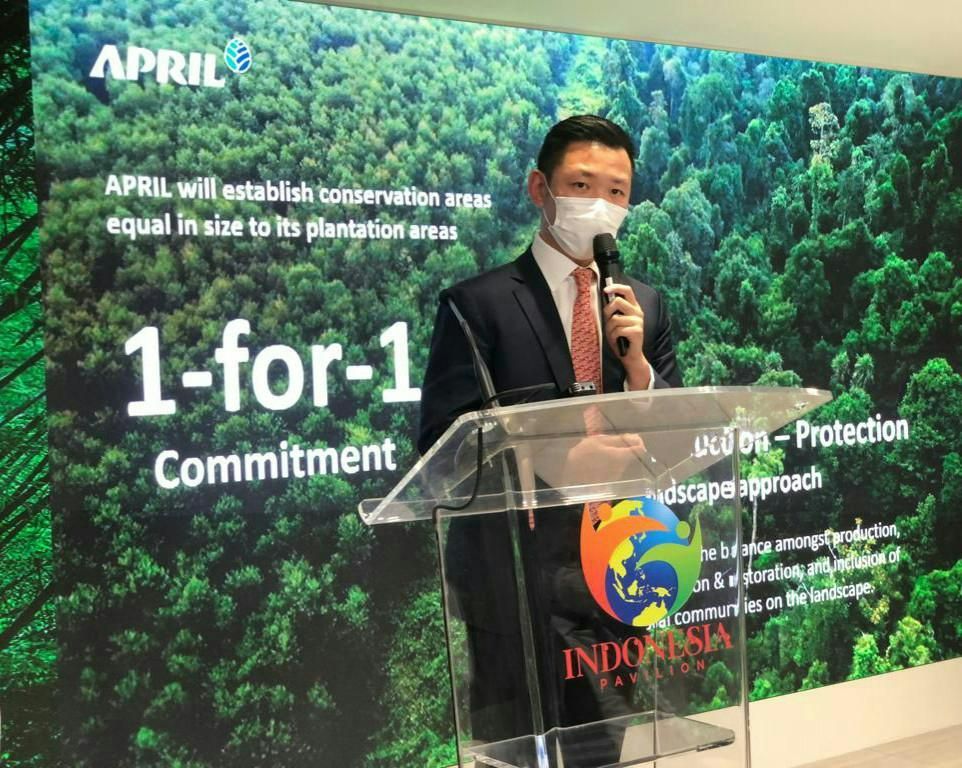
Managing Director Anderson Tanoto at COP26 in Glasgow.



